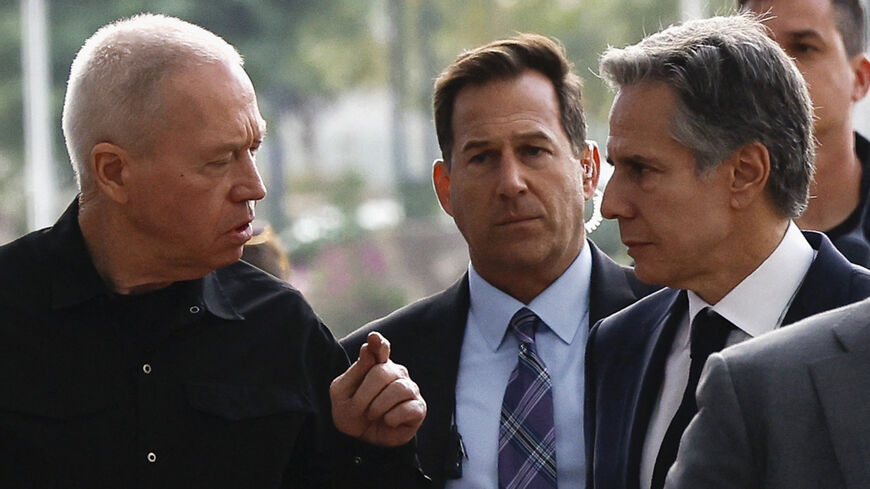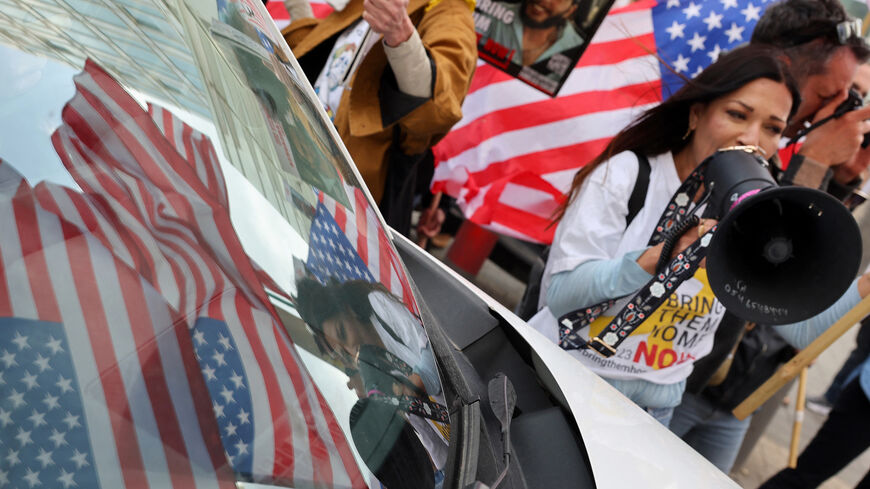In latest about-face, Netanyahu agrees to resend canceled US delegation to discuss Rafah
The White House said that Prime Minister Benjamin Netanyahu agreed for his top aides to travel to Washington to discuss the situation in Rafah after the Israeli leader canceled the delegation Monday.

Prime Minister Benjamin Netanyahu's office has agreed to send a delegation of top Israeli officials to Washington to discuss a possible military operation in Rafah, a reversal of his decision earlier this week to cancel the group's visit, White House Press Secretary Karine Jean-Pierre confirmed on Wednesday.
Jean-Pierre said the White House is working with Netanyahu’s office to set a new date for the rescheduled meetings.
The announcement by the White House was preceded by conflicting reports in Israel and the United States as to whether Netanyahu had indeed changed his mind about authorizing the departure of the delegation to Washington. NBC quoted unnamed Israeli and American sources claiming that Netanyahu had had a change of heart and agreed anew to the delegation traveling to the United States. A source in Netanyahu's office told Haaretz that the premier "did not authorize for the delegation to travel." Another diplomatic source suggested to Haaretz that the delegation would eventually go, "though nothing has been approved yet."
Strategic Affairs Minister Ron Dermer and national security adviser Tzachi Hanegbi were set to travel to Washington, accompanied by Ghassan Alian, head of Coordination of Government Activities in the Territories, at the request of President Joe Biden. Dermer and Hangebi are considered Netanyahu’s closest associates.
The White House would like to see Israel postpone and even cancel a military operation in the southern Gaza city of Rafah, where more than a million people, displaced from northern Gaza, have found refuge, and where humanitarian conditions are dire. Netanyahu has been refusing to go back on the operation, though he did agree to wait until the evacuation of the civilian population. The Biden administration was counting on the arrival of the delegation to present them with alternatives to the Rafah operation.
UN vote sparks cancellation
Netanyahu decided to cancel the arrival of the delegation to DC on Monday after the United States declined to use its veto power to scrap a resolution at United Nations Security Council calling for a cease-fire in Gaza. Netanyahu criticized the proposal for not conditioning the cease-fire explicitly on the release of the hostages held in Gaza by Hamas and said that the resolution encouraged Hamas to adopt more extreme positions in its negotiations for a hostage-release/cease-fire deal, effectively blocking ongoing talks on these issues in Qatar.
The White House said that Netanyahu’s accusation was "inaccurate," as Hamas delivered its response before the UN vote, but Netanyahu insisted that international support of the proposal aided Hamas because of the pressure it put on Israel.
War cabinet minister Benny Gantz slammed Netanyahu for canceling the delegation's visit. Gantz said on Monday, "The Security Council's decision has no operational significance for us, and in any case, we will continue to listen to our friends, and we will always do what is right for Israel's security." Gantz added, "Not only is it right for the delegation to travel — the prime minister would do well if he himself traveled to the US and held a direct dialogue with President Biden and senior government officials."
Netanyahu canceled the delegation while Israeli Defense Minister Yoav Gallant was in Washington for meetings with national security adviser Jake Sullivan, Secretary of State Antony Blinken and Secretary of Defense Lloyd Austin.
Blinken stressed at the meeting with Gallant on Monday that alternatives to a ground invasion of Rafah exist that would better ensure Israel’s security while also protecting the civilian population there.
Meeting in Jerusalem with visiting US Senator Rick Scott (R-Fl.) on Wednesday, Netanyahu said, "I thought the US decision in the Security Council was very, very bad." He added, "It encouraged Hamas to take a hard line and to believe that international pressure will prevent Israel from freeing the hostages and destroying Hamas."
Netanyahu then said, "My decision not to send the delegation to Washington in the wake of that resolution was first and foremost a message to Hamas — Don't bet on this pressure to work."









